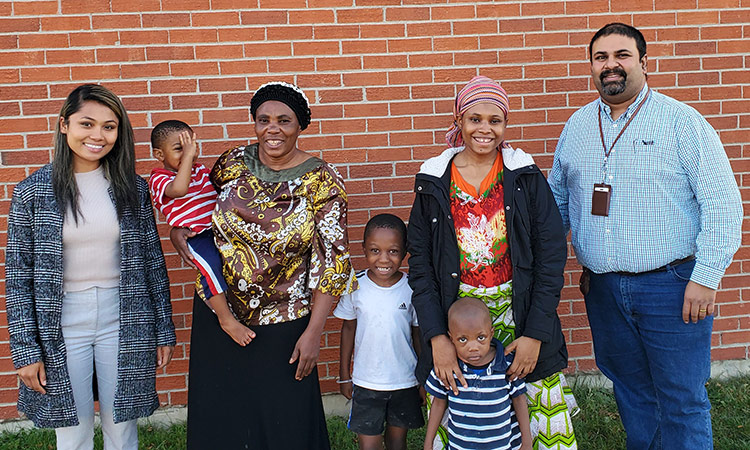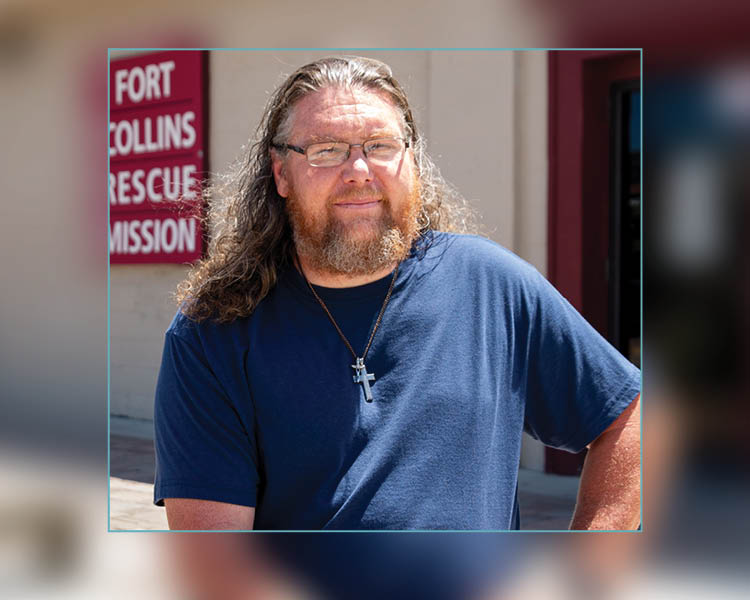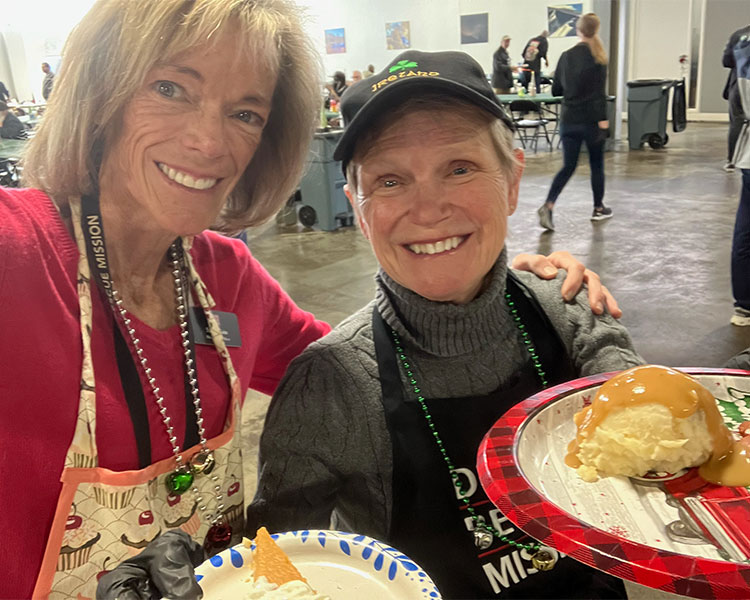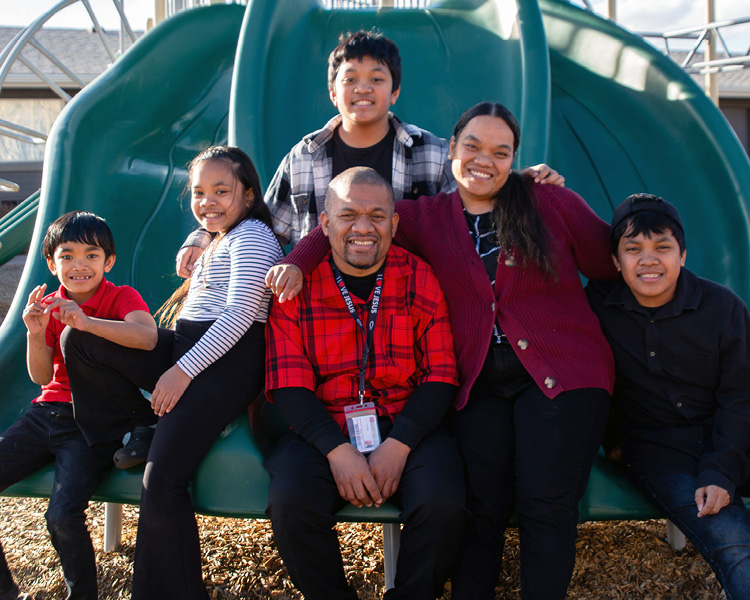According to partner agency, Lutheran Family Services, there are an estimated 60,000 refugees set to arrive in the United States, and from that around 70 to 80 Afghan refugee families are planned to arrive in the state of Colorado; there is expected to be a steady flow of arrivals from now through March 2022.
Denver Rescue Mission staff in the Family Refugee Services department are preparing to expand their capacity and develop plans to ensure the support of each refugee family.

History Behind Family Refugee Services
Many people know Denver Rescue Mission as the “Jesus Saves” shelter for those experiencing homelessness in the heart of downtown Denver. Little do they know, the Mission is so much more than our emergency services.
Nestled in our Administration & Education Building, on the first floor, is a team of case managers dedicated to helping some of the most vulnerable in our community through transitional programs. One of these programs that has taken center stage more recently is our Family Refugee Services (FRS).
FRS originated from our Family Rescue Ministry (FRM), where we support families and seniors by providing funding toward first month’s rent and a security deposit. Throughout our time serving families in the area through FRM, we recognized that we were often contacted by refugee families as well. Upon this observation, our organization reached out to Lutheran Family Services, one of the largest resettlement agencies in Colorado, to see how we could support their efforts—and the Family Refugee Services program began.
FRS is not a resettlement agency, like Lutheran Family Services. A resettlement agency is an organization that works with or for the government to help refugees settle into their community. Through FRS, the Mission comes alongside resettlement agencies to help families integrate into their respective communities. Through FRS, the Mission helps 30 to 40 refugee families each year.
How We Help Refugees:
- Case management: Case managers act as advocates for new families. They meet them upon arrival and ensure they have the necessities such as housing, health screenings, immunizations, and access to social service programs.
- Housing: Assist with finding housing including help with moving, set up of utilities and basic household furnishings.
- Employment services: Team reviews work background and assess language proficiency to find the best possible options for employment.
- Community: Work with Lutheran Family Services on neighborhood-based programs such as parenting workshops, financial literacy, and tutoring.
- Limited immigration services: Assist in family reunification, assistance in citizenship, and legal permanent residence.
Who does our Family Refugee Services Help?
Family Refugee Services provides help for people who have come to the US for reprieve from situations in their home country. “Any push factor such as wars, famine, genocide, xenophobia, famine, uncontained unrest, natural disasters, and more will force individuals out of their land to a new one,” says José Kabeya, our Refugee Services Coordinator.
These factors are what causes so many people to become refugees. United Nations High Commissioner for Refugees (UNHCR) states that there are 82.4 million refugees that were forced to be displaced at the end of 2020. UNHCR also says that in an average year, only 3-5% of those people are successfully resettled, during the pandemic that percentage was less than 1% of refugees. It takes an average of three to five years to vet and resettle a refugee family.
How You Can Help
Family Refugee Services already supports the needs of 30 to 40 families a year. With the influx of around 70 to 80 Afghan refugee families in Colorado in the coming months, we will need more financial support and volunteer mentors to help support all these families.
You can support the Mission and these families by volunteering as a mentor.

Mentors are kind and compassionate people looking to support and welcome refugee families into the Denver community. They are also willing to teach about American culture while respectfully learning about their refugee family’s culture.
Mentors build relationships with families, go grocery shopping with them, take them to appointments, and even do fun activities to get them acquainted with the area. Despite doing all these activities, the time commitment of a being a mentor is only about four to six hours a month. In the end, our goal is to ensure every family is set up for success in our community.
Holiday Housewarming for Refugee Families
You can provide household and hygiene essentials for refugee families this holiday season. Help families focus on meeting rent payments, bills, and even Christmas gifts this holiday season.
Written by: Sierra Murdoch, PR and Events Intern







